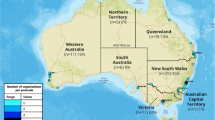Abstract
Introduction
The German Guideline Program in Oncology (GGPO) comprises guidelines aiming at epidemiology, prevention, diagnosis, treatment and aftercare of different types of cancer. As many patients in Germany use complementary and alternative medicine (CAM), the aim of our study was to assess the information on CAM presented in these guidelines compared to conventional, supportive and psychosocial therapy.
Methods
We assessed all recommendations and statements from guidelines published from 2010 to 2012 from the program according to level of evidence (LoE) as given in the guideline. We differentiated between conventional cancer treatment, conventional supportive treatment, psychosocial interventions and complementary treatment.
Results
A total of 9 guidelines (ovarian, colorectal, pancreatic, gastric, breast, prostate, oral cancer, melanoma and Hodgkin lymphoma) were included in our analysis. The total number of statements is highly diverse, ranging from 35 to 150. Only few statements and recommendations are given regarding supportive, psychosocial or complementary therapy. Regarding conventional treatments, only two guidelines (ovarian and oral cancer) have more than 50 % statements and recommendations on level 1. Considering supportive treatments, the LoE is lower, except the guideline on pancreatic cancer (40 % level 1). In breast cancer, all statements are based on expert consensus. Four guidelines do not include any statement at all. All guidelines beside that on Hodgkin lymphoma include at least one statement or recommendation on psychosocial therapy. Most recommendations are GCP.CAM is discussed in 8 guidelines; LoE is low with GCP statements dominating.
Discussion
There may be different reasons for the low number of statements and recommendations on supportive, psychosocial and CAM therapies. Often, these topics are considered less important, and evidence is assumed as being low. In the GGPO, guidelines focusing on psychosocial and supportive therapy are under development. Thus, cancer-specific guidelines will be able to refer to these guidelines and only include recommendations on psychosocial care and supportive therapy which are specific for the type of cancer. A national guideline on CAM would close the gap of information for physicians and patients. In case of missing or low evidence, a transparent description of this uncertainty would be valuable information to professionals and patients.




Similar content being viewed by others
References
Barton DL, Pachman DR (2012) Clinical trials in integrative therapies. Semin Oncol Nurs 28(1):10–28
Baum M, Cassileth BR, Daniel R, Ernst E, Filshie J, Nagel GA, Horneber M, Kohn M, Lejeune S, Maher J, Terje R, Smith WB (2006) The role of complementary and alternative medicine in the management of early breast cancer: recommendations of the European Society of Mastology (EUSOMA). Eur J Cancer 42(12):1711–1714 (Epub 2006 Jun 27)
Boddy K, Ernst E (2008) Review of reliable information sources related to integrative oncology. Hematol Oncol Clin North Am 22: 619–30
Brauer JA, EL Sehamy A, Metz JM, Mao JJ (2010) Complementary and alternative medicine and supportive care at leading cancer centers: a systematic analysis of websites. J Altern Complement Med 16(2):183–186
Broom A, Tovey P (2008) The role of the Internet in cancer patients’ engagement with complementary and alternative treatments. Health (London) 12(2):139–155
Cassileth BR, Deng GE, Gomez JE, Johnstone PA, Kumar N, Vickers AJ (2007) Complementary therapies and integrative oncology in lung cancer: ACCP evidence based clinical practice guidelines. Chest 132(3 Suppl):340S–354S
Deng GE, Cassileth BR, Cohen L, Gubili J, Johnstone PA, Kumar N, Vickers A (2007) Integrative oncology practice guidelines. J Soc Integr Oncol 5(2):65–84
Djulbegovic B, Loughran TP Jr, Hornung CA (1999) The quality of medical evidence in hematology-oncology. Am J Med 106:198–205
Frenkel M, Ben-Arye E, Cohen L (2010) Communication in cancer care: discussing complementary and alternative medicine. Integr Cancer Ther 9(2):177–185
Hann D, Baker F, Denniston M, Entrekin N (2005) Long-term breast cancer survivors’ use of complementary therapies: perceived impact on recovery and prevention of recurrence. Integr Cancer Ther 4(1):14–20
Huebner J, Muenstedt K, Muecke R, Micke O (2013a) The integration of methods from complementary and alternative medicine in reviews on supportive therapy in oncology and the resulting evidence. Trace Elem Electrolytes 30(1):24–28
Huebner J, Muenstedt K, Muecke R, Micke O (2013b) Is there level I evidence for complementary and alternative medicine (CAM) in oncology? An analysis of Cochrane Reviews. Trace Elem Electrolytes 30(1):29–34
Micke O, Bruns F, Glatzel M, Schönekaes K, Micke P, Mücke R, Büntzel J (2009) Predictive factors for the use of complementary and alternative medicine (CAM) in radiation oncology. Eur J Integr Med 1:22–30
Molassiotis A, Fernadez-Ortega P, Pud D, Ozden G, Scott JA, Panteli V, Margulies A, Browall M, Magri M, Selvekerova S, Madsen E, Milovics L, Bruyns I, Gudmundsdottir G, Hummerston S, Ahmad AM, Platin N, Kearney N, Patiraki E (2005) Use of complementary and alternative medicine in cancer patients: a European survey. Ann Oncol 16:655–663
Poonacha KT, Go RS (2011) Level of scientific evidence underlying recommendations arising from the national Comprehensive Cancer Network clinical practice guidelines. J Clin Oncol 29:186–191
Qaseem A, Forland F, Macbeth F, Ollenschläger G, Phillips S, van der Wees P (2012) for the Board of Trustees of the Guidelines International Network; Guidelines International Network: Toward International Standards for Clinical Practice Guidelines. Ann Intern Med 156(7):525–531
Tricoci P, Allen JM, Kramer JM, Califf RM, Smith SC (2009) Scientific evidence underlying the ACC/AHA clinical practice guidelines. JAMA 301(8):831–841
Vincent S, Djulbegovic B (2005) Oncology treatment recommendations can be supported only by 1–2% of high-quality published evidence. Cancer Treat Rev 31:319–322
Zeller T, Muenstedt K, Stoll C, Schweder J, Senf B, Ruckhaeberle E, Becker S, Serve H, Huebner J (2013) Potential interactions of complementary and alternative medicine with cancer therapy in outpatients with gynecological cancer in a comprehensive cancer center. J Cancer Res Clin Oncol 139:357–365
Conflict of interest
The authors declare no conflict of interest.
Author information
Authors and Affiliations
Corresponding author
Rights and permissions
About this article
Cite this article
Huebner, J., Follmann, M. Complementary medicine in guidelines of the German Guideline Program in Oncology: comparison of the evidence base between complementary and conventional therapy. J Cancer Res Clin Oncol 139, 1481–1488 (2013). https://doi.org/10.1007/s00432-013-1464-7
Received:
Accepted:
Published:
Issue Date:
DOI: https://doi.org/10.1007/s00432-013-1464-7




